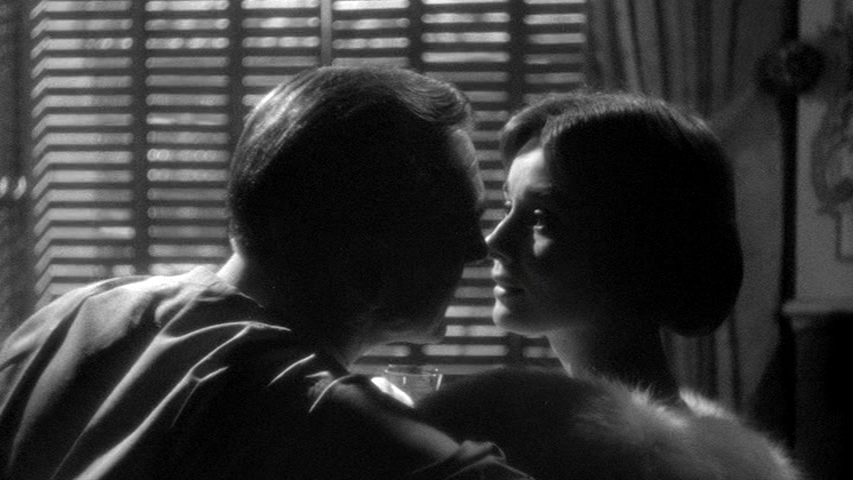Love in the Afternoon, 1957, Allied Artists Picture Corporation. Starring Gary Cooper, Audrey Hepburn, Maurice Chevalier. Directed by Billy Wilder. B&W, 130 minutes.
Ariane Chavasse (Audrey Hepburn), a young Parisian woman living with her private investigator father, Claude (Maurice Chevalier), overhears one of her father’s clients plan to kill the man who has been meeting his wife for afternoon liaisons. Pictures of the soon-to-be victim, Frank Flanagan (Gary Cooper), intrigue young Ariane, who sets out to rescue him.
She maneuvers her way through hotel rooms and balconies into Frank’s room, where, indeed, he is with the wife of Claude’s client. With some quick thinking and further deception, Ariane and Frank convince the gun-wielding husband his wife is not in the room (and at this point she is not). While doing so, they share a kiss, and sparks begin to fly.
But Flanagan is a known womanizer, and Ariane is an innocent. When Claude realizes what is happening, he is both alarmed and saddened by his daughter’s interest in the philandering Frank, and does what he can to stop them. The heart will have what it wants, however. Ariane proceeds with her plans to seduce Flanagan. For his part, Frank Flanagan is soon captivated by the young woman in a manner new to him, and despite her inexperience, Ariane plays her cards well.

Gary Cooper, Audrey Hepburn
When asked about the age difference between the stars (Cooper was 56, Hepburn was 27, and the nearly 30 years was noticeable—and notable), director Wilder said, “He’s Gary Cooper. He could get any woman he wanted.” As with many of his films, Wilder originally wanted Cary Grant, who declined the part. Grant was 53. Wilder then considered Yul Brenner, planning to model the character after Aly Khan, at the time the husband of Rita Hayworth.
The film was well received by critics, with The New York Times gushing, “The pedestal on which the reputation of Ernst Lubitsch has been sitting all these years will have to be relocated slightly to make room for another one. On this one we’ll set Billy Wilder. Reason: Love in the Afternoon.”
The critic goes on to point out the story has no moral, which is true enough. As romantic as the ending may be, it takes a great leap of faith to believe in it and not cry out after Hepburn, “don’t do it, you fool!” Some credibility comes from the way the story is told, rolling out in such a way to show Flanagan evolving away from his carefree attitude toward romance.

Gary Cooper, Audrey Hepburn
Love in the Afternoon was less appealing to audiences of the time, even in Europe, where several scenes were cut. In France, the name of the film was changed to Ariane, as the original title was considered too provocative. In an effort to placate audiences concerned about the morality of the story, there is a voice-over from Chevalier in the end assuring everyone the two are now happily married.
If anything, it is the class and charm of the stars that make this movie worth watching, for the story itself leans to the déclassé and tawdry. Chevalier plays the loving and concerned father with grace and compassion, Cooper is, of course, Gary Cooper, and Hepburn is a young girl in love, naïve and hopeful.
The script, by Wilder and I.A.L. Diamond (their first of many collaborations), is inventive, playing on both the sexual nature of the story and the innocence of new romance. If the tale is considered in the way intended, it is a passably charming one, but there are credibility issues to overcome, and a greater suspension of disbelief to allow for in accepting a happy ending.

Ah, the majestic happy ending. Really… if only life.
LikeLiked by 1 person
The ending drives me crazy. I found myself crying out, “don’t do it!! Men like that don’t change!” But, it’s Hollywood. So there you go.
LikeLike
Gary Cooper and Bogey…my guys.
LikeLiked by 1 person
I tjhought of you with this one. Not my favorite Cooper film, but there never will be anyone quite like him.
LikeLiked by 1 person
I wish I could find an Ariane Chavasse.
LikeLiked by 1 person
🙂
LikeLike